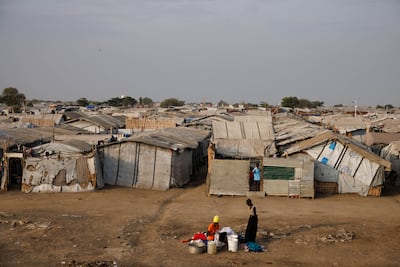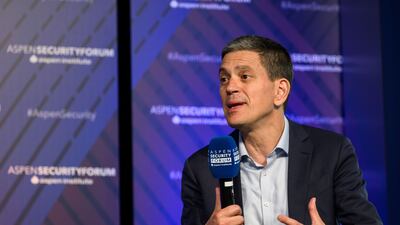The new UK government should increase its role in international aid, as the rise of the far-right in Europe has caused overseas development budgets to drop, the head of the International Rescue Committee said on Wednesday.
David Miliband, a former Labour Party cabinet minister who now leads the New York-based international NGO, said that aid budgets were “under disproportionate stress” as populist sentiment in Europe had grown.
European countries that once led the global fight against poverty are increasingly diverting funds, with populist leaders hostile towards the climate change debate.
“There is a real temptation for far-right parties to weave together overseas aid and scepticism about the climate crisis,” Mr Miliband said on Wednesday.
This shifting political landscape comes as the world’s poorest countries could see “deepening levels of extreme poverty” as conflict and climate change overlap.
The 16 countries most vulnerable to climate change were also affected by conflict, accounting for 44 per cent of the world’s poor, Mr Miliband said, quoting recent IRC figures. The list of countries includes Syria, Sudan and Myanmar.

“The trends are towards a deepening of the overlap and the deepening of the extreme poverty,” he said, speaking at Chatham House on Wednesday.
Mr Miliband, who will be meeting the new Labour government this week, called for the UK to be “ambitious” but without “hubris” about its global role.
“Of course, the UK cannot and should not offer a quick fix to these problems but we are still one of the world's richest countries. We have platforms that are not available to others," he said.
The UK's overseas aid budgets dropped significantly in the past decade under a Conservative leadership, and now was the time to reinstate some of them, Mr Miliband said.
“The government is spoilt for choice where it has to put its efforts. There’s goodwill. There’s international interest in where the UK is going to go. There’s an opportunity to bring the policy brain back into this."
The UK was gripped by far-right riots over the summer, with attacks on mosques and hotels housing asylum seekers.
But Prime Minister Keir Starmer was unlikely to ride the waves of populism seen elsewhere in Europe, Mr Miliband said. “The government here have been principled and clear about that.”

Mr Miliband did not think it was necessary for the UK to immediately restore its commitment of 0.7 per cent GDP for overseas aid – the UN target that the UK dropped to 0.5 per cent as a result of the pandemic.
"We know that the UK government has pledged that the restoration ... can only be achieved when economic conditions allow," he said.
Instead, Mr Miliband proposed reinstating a 50 per cent target of overseas aid going to fragile and conflict states, which had dropped to 15 per cent since 2015, and to work with grant-giving multilateral institutions such as the World Bank's International Development Association.
The UK could also "put itself at the front" of initiatives supporting climate change adaptation.
Mr Miliband served as environment secretary under Tony Blair, and Foreign Secretary under Gordon Brown. The debate on climate change had changed since he was in government, he said.
“The parties were competing to expand and extend their commitment," Mr Miliband said. "When Tony Blair appointed me, he said, 'we can’t have the Tories setting the agenda on this. We need to make sure that we’re ahead of the game'. We’re in a very different situation now.”
He praised UK Foreign Secretary David Lammy’s recruitment of economist and academic Minouche Shafik to lead a review of Britain’s approach to international development.
With western aid faltering, other wealthy countries should also help fill the gap, Mr Miliband said.
“The fact that the aid system is disproportionately dependent on the traditional West is not healthy. It's not only the traditional West that’s got economic power today.
“There’s also a lot of questions being asked about those countries that have benefitted from rising incomes in the last 15 years, what are they putting into global aid system,” he said, without naming the countries.
Those wealthy nations were giving priority to aid budgets through direct agreements with other countries, at the expense of funding multilateral institutions and international NGOs.
“Certainly through the multilateral system it's relatively low, there are bilateral efforts being made,” he said.


